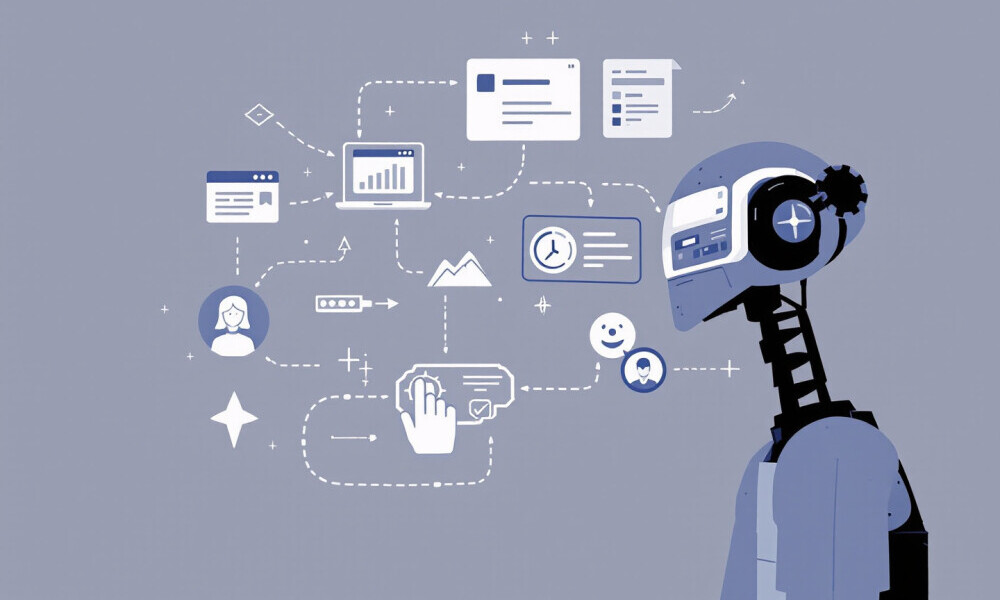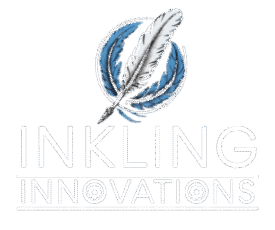How To Write An Ebook And Sell It

Starting with the end goal is essential when creating a successful eBook. Identify the target niche market you want to serve—having a clearly defined audience avatar makes it easier to craft content that speaks directly to their needs and expectations.
When choosing between digital publishing and traditional routes, each comes with unique advantages and challenges. Understanding the differences between self-publishing vs. traditional publishing can help you choose the right path for your goals. eBooks give authors greater control over content, pricing, and royalties—but also require strong author branding, book marketing, and sales funnel strategies.
Looking at top-performing eBooks in your genre can provide valuable insight. Whether you’re passionate about writing bestselling fiction, motivational self-help, or niche how-to guides, each genre has proven formulas that resonate with readers. Studying what has worked for others can inspire your writing and provide a blueprint for your own success.
The Craft of Writing: How to Pen a Bestselling eBook
Creating a captivating eBook starts with a good old brainstorming session. Getting ideas down and seeing what sticks sets the groundwork for a strong outline. In today’s world, using AI writing assistants like ChatGPT can spark creativity and give you access to trending topics and gaps in existing content. You can also create lists of topics you’re passionate about and begin outlining the story you want to tell.
Using AI writing tools to develop a strong content outline, generate content ideas, or even assist in structuring your SEO is the heavy lifting, where you can remain focused on the creative and better understand how to keep readers engaged. Writing this way generates a focal point for your mind to go to, where you can practice comprehensive storytelling and gain immediate feedback for clarity and conciseness. Imagine your ebook having a solid introduction that pulls your audience in, followed by a clear progression to the main content.
Writing in a straightforward, conversational tone is key. It enhances readability, user experience, and keeps your message accessible.. It boosts readability and ensures your message is clear. Understanding how to balance information and entertainment determines how well your eBook resonates. A memorable eBook doesn’t just dump facts but engages in persuasive writing—it’s what connects with the reader and keeps them hooked.
Also, don’t skip the editing phase. A professional touch can make all the difference. But before you hand it over to a professional, another AI writing tool is readily available to assist in editing your work for grammar and tone. Using Grammarly before taking it to a human editor can save time. But don’t let it become the storyteller. You remain the writer. Maintain the engaging elements that keep the reader turning pages and coming back for more.
For example, let’s say you are incorporating dialogue. The dialogue should stay unique to the story, whether a real-world person or a fictional character. Grammarly will recommend changes to refine it for grammar and clarity. But as the writer, you know better. Do this for narrative as well, the source that breathes life into your text and paints the imagery of your content in your audience’s minds. The narrative counts as a voice, your voice, and AI writing tools should not replace it.
The Ethics of Letting AI Write Your Entire Ebook

AI writing tools will continue to evolve, and digital creators continue asking a tough question: Is it ethical to let AI write my whole ebook? It’s a fair question—and one that doesn’t have a one-size-fits-all answer.
On one hand, AI can be a massive boost to your content creation process. It saves time, helps structure your ideas, and even fills in creative gaps when you hit a wall. But when it comes to digital publishing—especially something as personal and long-form as an ebook—the waters get murky.
At the heart of the issue is authentic voice. Your readers aren’t just downloading a file—they’re investing in you, your perspective, and your unique message. If AI takes over the writing entirely, are you still offering original content? Or does it become just another copy-and-paste product in the crowded digital space?
There’s also the matter of transparency. If your ebook is 100% AI-written, should you disclose that to your readers? The answer is an infactic YES—it’s about honesty and trust. Others might see the AI as just another tool in the creative process, no different from hiring a ghostwriter or editor, but you should know as a copywriter the continuously forming regulations surrounding this issue.
Let’s take the most popular genre, Self-Help. Is it Littered with AI-Written Content? The short answer is much more anecdotal and indirect evidence that many self-help ebooks are written entirely by AI. However, there’s no formal, large-scale study as of yet that quantifies how widespread this has become. But here’s what we do know (and for transparency sake, I did have AI help pull much of these figures for this to have a clear breakdown and save a bit of time. You can click the links if you want to know more):
1. Explosion of Low-Quality Self-Published Ebooks
- Platforms like Amazon’s Kindle Direct Publishing (KDP) have seen a flood of self-help books, many of which:
- Have generic titles and covers
- Reuse popular buzzwords
- Contain repetitive or vague advice
- Lack personal stories or case studies This has led many readers and authors to suspect AI involvement, especially since the writing often feels robotic or overly polished.
2. AI Detection Tools Catching On
- Some reviewers and editors are starting to use AI detection tools to check manuscripts. While not foolproof, these tools often flag self-help content as likely AI-generated—especially when:
- There’s no cited personal experience
- The tone is flat or “too perfect”
- The book lacks a clear, unique voice
3. Reddit, Author Forums & Publishing Blogs
- Communities like Reddit’s r/selfpublish or KBoards are full of threads from Authors who brag about generating a full self-help ebook with ChatGPT in a weekend
- Readers complaining that books feel like AI rewrites of other books
- Editors frustrated by being asked to “humanize” AI-generated drafts
4. Amazon Crackdowns Are Starting
Amazon has added a disclosure checkbox for AI-generated content and began limiting the number of books a single author can publish per day. This suggests they’re seeing a surge—often linked to genres like self-help, business, and health—where AI is likely being overused.
Why Self-Help Is Especially Vulnerable?
- Low barrier to entry: No need for complex plots or world-building.
- Formulaic structure: Most books follow the same intro/problem/solution model.
- High demand: Readers are always searching for guidance, fast.
- AI excels at mimicking motivational or instructional tones.
Ultimately, it comes down to your intentions. If you’re using AI as a co-writer or collaborator to bring your ideas to life, that’s entirely different from outsourcing all your thinking. Ethical content creation means being THOUGHTFUL about the role AI writing tools play—and ensuring that, no matter how smart the tool is, the message remains in your voice—AKA your own style, words, and tone.
I’d like to point out how important it is to remain transparent with your audience in how your content is made. That’s one of the reasons Inkling Innovations was created—to not only show the creative side of writing but forefront how AI is used to enhance and build our minds as writers. Many creatives will never care for AI and likely will call people out who even figet with the progressing technology. Yet, just remember, the horse and buggy hated the automobile when it first came on the scene. People scorned the Wright Brothers when they tried to pioneer aviation. But that’s what AI is meant for and should mean to us as writers, to accomplish more and dream bigger to get our ideas lifted off the ground in ways we never imagined.
Marketing Your Masterpiece: Strategies for Selling Your eBook
Getting your eBook out there requires more than just uploading it to a platform. Think of the cover design and description as your first impressions. A catchy cover paired with an engaging blurb can make your eBook stand out amidst a sea of choices.
Social media is your friend when it comes to reaching potential readers. Platforms like Instagram, X (Twitter), and Facebook aren’t just for socializing. They play vital tools for spreading word-of-mouth and creating a buzz.
Creating a website or blog devoted to your eBook or its themes can also draw interested readers in, establishing you as an authority. This hub helps with building a lasting connection with your audience.
And don’t underestimate the power of an email list. It’s a direct line to people who genuinely want to hear from you. Regular newsletters can maintain interest and inform your audience about any updates or future releases.
Maximize your reach by utilizing major platforms like Amazon Kindle or Apple Books, but don’t ignore niche markets where your book might be a perfect fit such as Gumroad or Kobo (get’s you onto Wal-mart’s website). The right marketplace can make all the difference. Exploring both broad and targeted strategies ensures your eBook gets the audience it deserves.
Self-Publishing: From Manuscript to Market

Once you’ve chosen a platforms, ensure your eBook meets their formatting requirements. It could mean converting your work into EPUB, MOBI, or whatever format the platform supports. (Remember that Amazon ceased using MOBI in 2022). Investing time in the right formatting can prevent headaches down the line.
After uploading, focus on the launch details. A strategic release date and additional promotions can amplify initial visibility and sales. Pre-launch buzz through teasers or cover reveals gives your book much-needed anticipation.
Generating reviews is also crucial. Encourage early readers or offer ARCs (Advance Review Copies) to gather reviews that other prospective buyers can trust. A steady stream of positive feedback generally aids credibility and drives more sales.
Maintaining a professional author profile across all platforms portrays reliability. Keep your bio updated, showcase your work, and interact with readers—building a community around your writing journey keeps the momentum going beyond just the initial launch.
Your Voice, Your Vision, Your eBook
Writing and publishing an eBook is no longer about putting words on a page—it’s about connecting with readers, standing out in a saturated market, and staying true to your unique voice. Whether you’re tapping into AI writing tools for brainstorming or navigating the ever-shifting ethics of digital content creation, one thing remains central—keep your authenticity. From initial idea to final upload, every step of this journey is an opportunity to learn, grow, and create something that truly reflects who you are. So be intentional. Be transparent. And most of all—be bold. The tools are here, the platforms are ready, and the readers are waiting. Now, it’s your turn to manifest your dream into something tangible, page by page.







Writing and selling an ebook is all about offering value to your audience. Start by choosing a niche you’re passionate about, create engaging and informative content, and keep your writing clear and concise. Once your ebook is ready, use platforms like Amazon Kindle or your own website to sell it. Marketing through social media and email newsletters can help drive traffic and boost sales. Remember, consistency and quality are key!
Writing and selling an eBook definitely sounds empowering, but I’ve always wondered how much time should be spent on the actual writing versus researching the market and audience first. Is it better to create something niche-specific with a smaller audience or aim for broader appeal from the start? Also, do you think launching on your own site is more effective than using platforms like Amazon, especially in terms of long-term profits and control over your content?
Creating your very own digital product, like an e-book, gives such a great feeling because the book is yours, and if it is a best seller, you get to make royalties from it. I once wrote an e-book before and was so excited. Since I have come across your post, I will seek to write and publish one again by following your guide. Thanks for sharing.